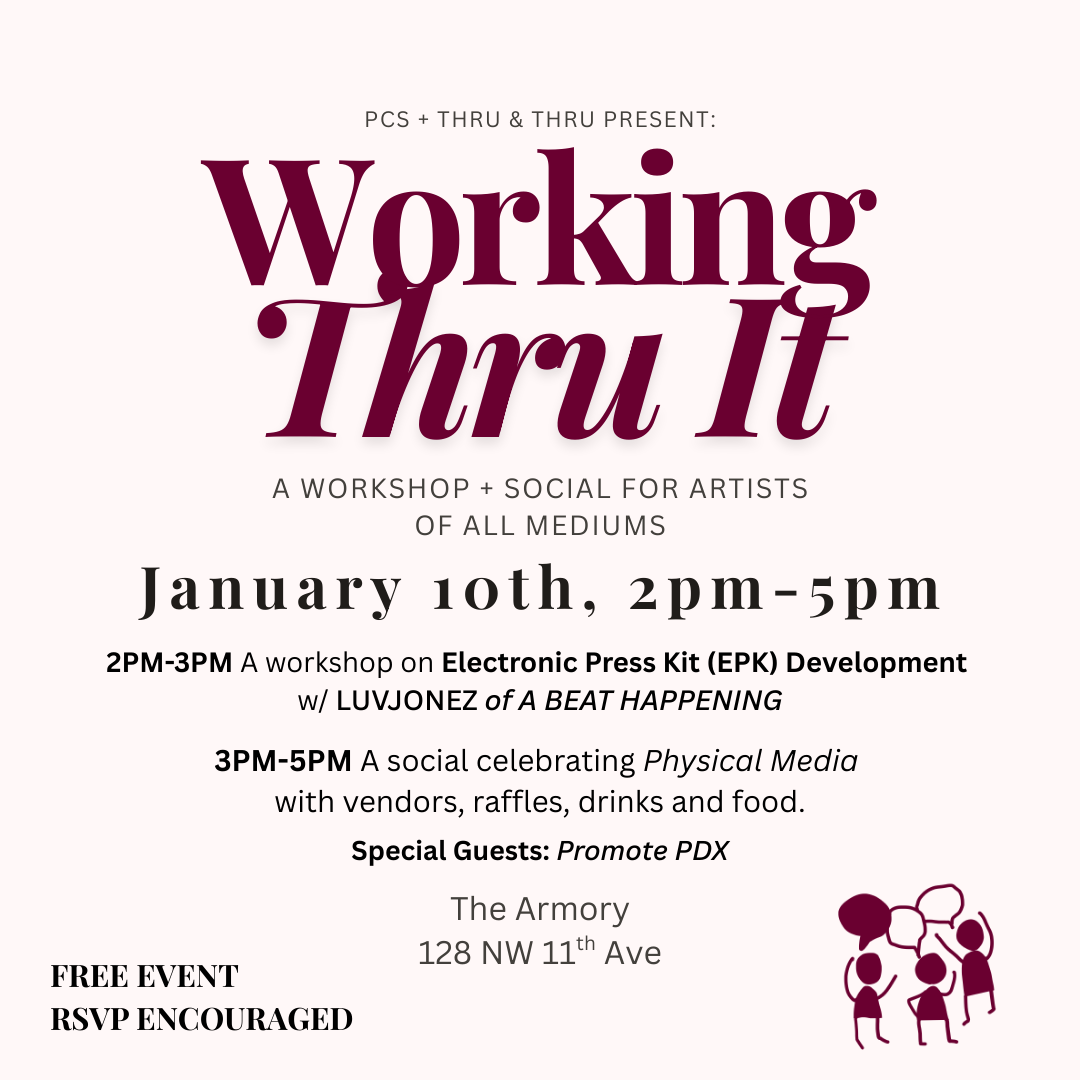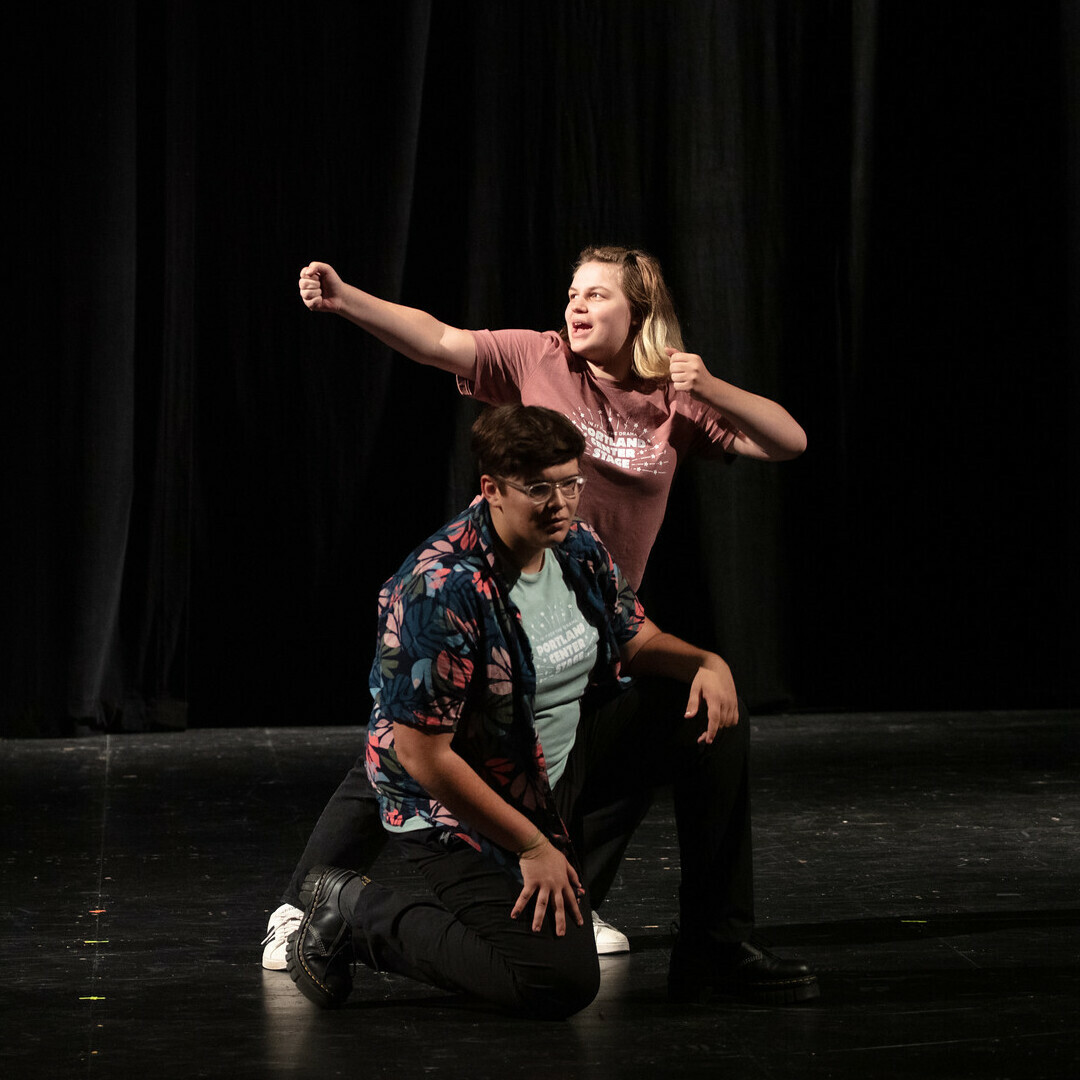The Story Behind "Every Brilliant Thing"
The making of Every Brilliant Thing from 2009 - 2013
Shared from the Paines Plough guide
"The way Duncan tells it, Every Brilliant Thing began as a favour. Rosie, an actress in his first play, came up to him on their final night. She was in two scenes but had no lines and was required to keep her back to the audience.
After the performance, she took his face in her hands and said: ‘You owe me.’ A few months later he was invited to write a short play for The Miniaturists and it seemed like a good opportunity to repay the favour. He wrote her a monologue.
Having been in a play where she said nothing, she was now able to stand on stage and talk constantly for fifteen minutes which, knowing Rosie, suited her much better.
As the girl grows up, so does the list. It takes on a life of its own, other people start adding to it, writing in the margins, making amendments, providing footnotes. The purpose of the list is forgotten and her mother’s depression doesn’t go away.
Eventually, as a grown woman, she reaches her self-imposed target of one million entries.
She calls the list ‘Every Brilliant Thing’. People who heard Rosie read the monologue enjoyed it greatly and so over the next few months, she was asked to perform it again and again at different theatres.
A little while after that, Duncan was invited by Paines Plough to perform something he’d written as part of LATER, which was a monthly event conceived by Mark Ravenhill, where playwrights would read or perform their own work. Duncan decided to read SLEEVE NOTES, and set about changing anything gender specific and making the list in the story feel a bit more macho.
3675. Shoes became 3675. Marlon Brando
I really liked how he performed it. It felt honest. Autobiographical maybe. Despite not particularly having enjoyed the experience of performing it the first time round, he reluctantly relented and agreed. I noticed once more how the simplicity, warmth and hope of the story moved people.
A year or so later people still mentioned the story to me. How it had stayed with them. How it had gently changed the way they viewed things. Duncan and I met for coffee and between us we dreamt up the idea of actually making the list in the story. From scratch. Something that, like in the story, anyone could add to and share. Unsure of exactly where to begin, we started a Facebook group in the hope of reaching out to those who already knew the story to help us populate the real life list. Within hours contributions started flying in.
101. Massages
102. Late night text conversations
103. Inappropriate songs played at emotional moments
The group continued to grow and within a few months we had several hundred members and nearly a thousand entries.
We took SLEEVE NOTES to a festival in Brick Lane and to the Innocent Village Fete in Regents Park where it was read by Gugu Mbatha Raw while children hung their contributions on the branches of ‘The Tree of Every Brilliant Thing’.
2571. Hugs and laughing til your tummy hurts
2572. Seashells
We saved all the contributions in a huge card board box and added them to the Facebook Group. We loved the idea of the list existing physically as well as digitally – something you could look at, hold in your hands, walk around.
So we enlisted designers Paul Burgess and Simon Daw and set up what Paul called a ‘voluntary sweatshop’. We began to transpose the digital entries from Facebook on to paper, using backs of envelopes, post-it notes, newspaper cuttings, receipts, cardboard, beer-mats, whatever we could get our hands on. We installed our list like an exhibition in one of the huge arches in Village Underground in Shoreditch – thousands and thousands of entries;
3263. Telephones with a rotary dial rather than push buttons
3346. Getting a mix tape
3376. Columbo
At some point in the evening the music from the next arch got so loud that it drowned out the headphones. So I managed to persuade Duncan to get up on stage and perform SLEEVE NOTES one last time. 500 people stopped dancing, and almost as one, quietly sat down on the floor to listen. Duncan reads SLEEVE NOTES at the nabokov Arts Club. The following year, Tania Harrison invited us to take the exhibition to the Latitude Festival. This time we had our own tent in which we set up the installation.
Our Stage Manager Kirsten Turner, along with some help from willing volunteers Hannah Scott and Camilla Kinchin, spent the weekend rallying people to come and perform SLEEVE NOTES inside the tent. We had set it up so that someone different would read the story every fifteen minutes or so, for four days straight. As well as actors Sian Clifford, Tom Cullen,
Clare Dunne, Phoebe Waller- Bridge, Ferdy Roberts and Craig Gazey amongst others, we also tempted comedians Ed Byrne and Frank Skinner to do a shift. But for a last minute intervention, we would have had Jarvis Cocker up there too.
This was where the life of the exhibition ended, though the Facebook group continued to grow.
3545. Untangling things
But still the project itself hung in the air. I went to stay with a GP friend in Wales who told me how it had changed her perspective and how much good she thought it could do for others. Another friend who at the time was a parliamentary consultant for the Royal College of Psychiatrists spoke passionately to me about how helpful it could be to run it at one of the party conferences to raise awareness for mental health charities. We were approached by the people who run World Mental Health day too. We never intended it to, but it had managed to speak quite eloquently but in a very gentle way about the connections between perception and mental well-being. But more than any potential political impact was the feeling we had something positively contagious that more people should come in to contact with. The Facebook group continued apace, gathering followers and contributions from around the world.
So in 2012, during the London run of Duncan’s play LUNGS, we picked up the conversation once again. We wondered what the evolution of the project would be and how Paines Plough, as well as other companies, might facilitate the next step of the journey."
Jonny Donahoe and Duncan Macmillan Talk Brilliant Things with HBO
Read the full interview and watch the HBO documentary film
HBO: Why did you decide it was important to involve the audience in the performance of Every Brilliant Thing?
Duncan Macmillan: We wanted it to be a conversation with the lights on. Everyone could see each other, everyone could hear each other, and everyone could laugh and cry together. The word we kept using was the “gesture” of the piece, as in, let’s not separate us from the audience; let’s do everything together.
HBO: How did you approach delving into a discussion of depression and suicide within the context of a play?
Duncan Macmillan: It’s a scary, dark subject that we didn’t want to sentimentalize, but we also wanted to be really honest and helpful about it. We felt it was important to do something that is very rare for British men, which is to talk about emotions. It had to be funny, and it also needed to be open and generous and inclusive of an audience and not scare people off.
Jonny Donahoe: Because the theater is “in the round,” you have this moving set around you of people reacting, engaging, laughing and crying. I’d catch couples taking each other’s hands. That’s why we always insisted it be in the round; it isn’t just that you have to see the audience members play characters like “Dad” and “Girlfriend,” you have to be able to see everyone response to it. It’s where the form meets the content of the piece. Depression is something that affects all of us, whether directly or indirectly, and the only way to deal with it is to be open about it.
People from all over are making a list of things that make life worth living. Please contribute here!
Some random things from the list so far:
1. Ice cream
15. Laughing so hard you shoot milk out your nose
62. Roller coasters
103. Inappropriate songs played at emotional moments.
113. When platitudes turn out to be true - like waking up realising something, then actually smelling real coffee
128. David Bowie
307. Piglets
570. Talking Heads (the band)
1040. Fuzzy Felt
1061. Pina Bausch
1063. The word 'plinth'
1244. Hammocks
1294. The even number Star Trek Films
Portland Center Stage is committed to identifying & interrupting instances of racism & all forms of oppression, through the principles of inclusion, diversity, equity, & accessibility (IDEA).
















